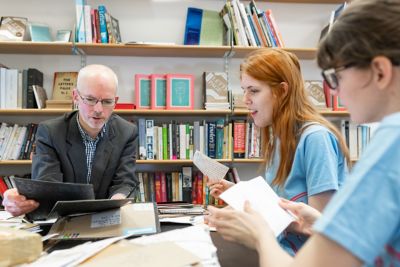Are you interested in publishing? Do you enjoy writing quickly and responsively, in a style that grips your reader?
In this creative role you’ll work closely with our marketing and production teams to help create written content, the whole time getting a feel for how a small contemporary publishing team works together.
Most of your time will be researching, writing, editing and publishing features on our website.
Second to that, and among other things like reading and assessing the submissions we receive, you’ll be in a role which involves contacting and interviewing different people. In the past this has included contacting published authors and talented writers to discuss their submission, or to inform new content for the website.
To get a real insight into the daily life of a web editor, our previous role holder has given you a detailed diary entry for you to read. Please open the diary to get a feel for what the role entails.







